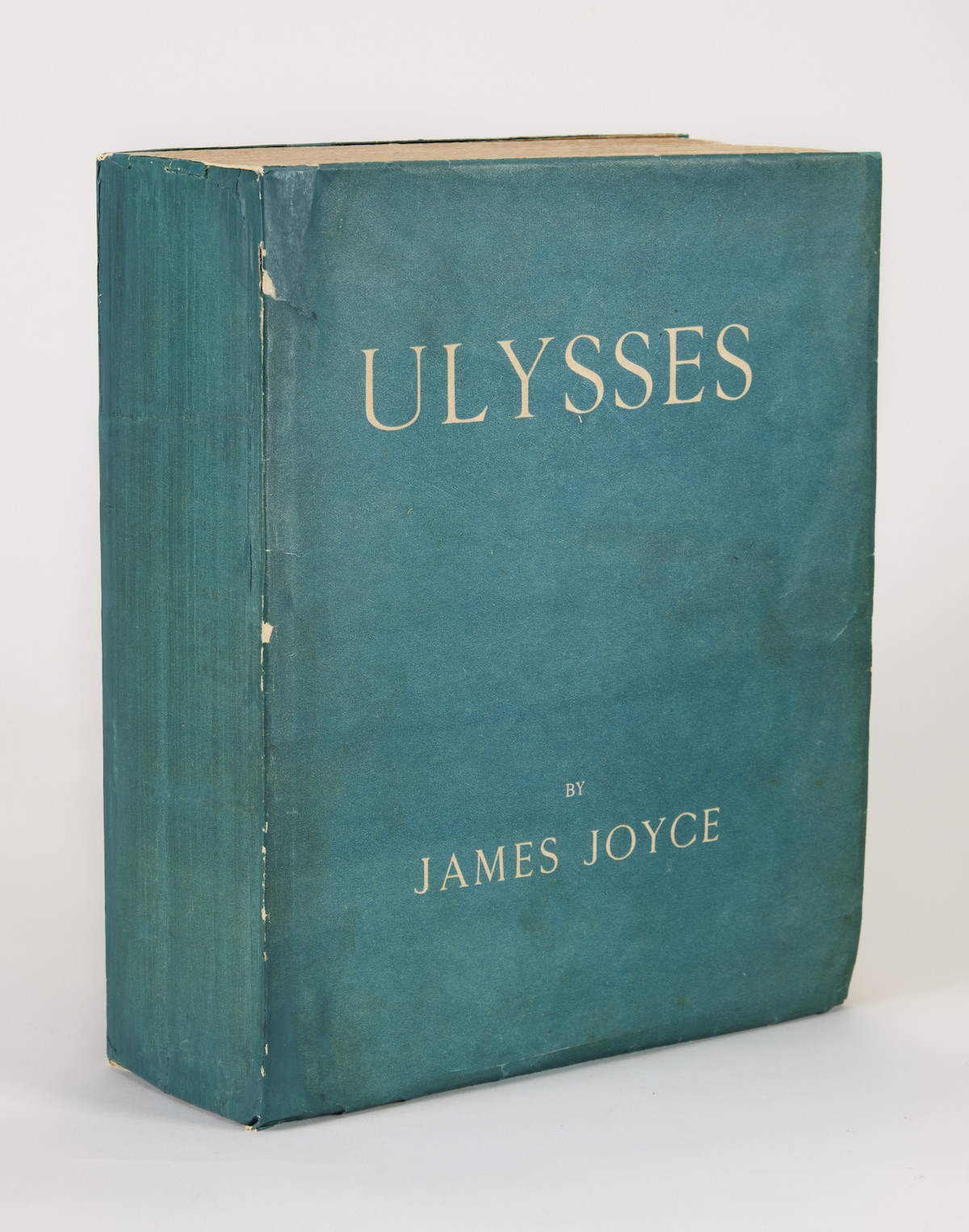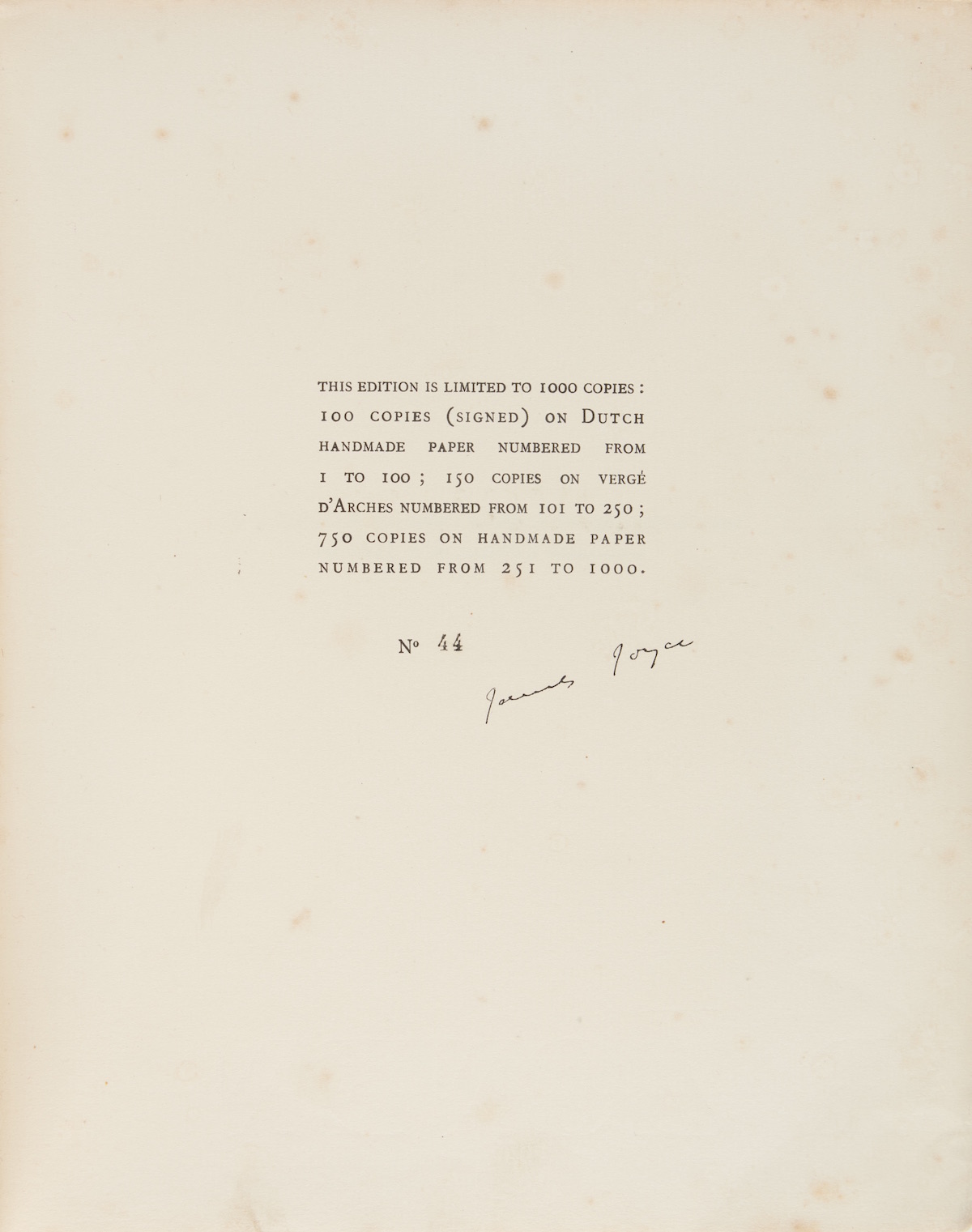1 of 100 copies signed by James Joyce
JOYCE, JAMES. Ulysses.
Paris: Shakespeare and Company, 1922
Original blue wrappers. Joints and spine ends expertly restored. Very light wear, occasional foxing and browning. An excellent copy. Half morocco slipcase.
First edition. Number 44 of 100 numbered copies printed on Van Gelder paper and signed by James Joyce.
The signed, deluxe first edition of Ulysses is the most sought-after book of 20th-century literature. T.S. Eliot told Virginia Woolf after reading Ulysses, “How could anyone write again after achieving the immense prodigy of the last chapter?” Gertrude Stein commented, “Joyce is good. He is a good writer. People like him because he is incomprehensible and anybody can understand him.”
Early in 1918, Ezra Pound secured Ulysses, then in progress, for the avant-garde American literary magazine The Little Review. Joyce was delighted to know that his book was being read and talked about, if only in modernist circles, and the serial publication spurred the author on as he tried to keep pace with the magazine’s schedule. Several numbers were seized as obscene and burned by the United States Post Office, and the obscenity trial began on February 14, 1921, resulting in the editors’ conviction. The serial publication of Ulysses ceased, and the American publishers who had considered publishing the book abandoned the project.
Within weeks Joyce agreed to Sylvia Beach’s offer that the first edition appear in Paris under her Shakespeare and Company imprint in 1922. The first edition appeared in three forms, each numbered: 100 signed copies on Dutch handmade paper, 150 copies on large paper, and 750 ordinary copies.
Just prior to publication, Joyce warned, “The pity is the public will demand and find a moral in my book, or worse they may take it in some serious way, and on the honor of a gentleman, there is not one single serious line in it.” He added, “In Ulysses I have recorded, simultaneously, what a man says, see, thinks, and that such seeing, thinking, saying does, to what you Freudians call the sub-conscious–but as for psychoanalysis, it’s neither more nor less than blackmail” (Ellmann, pp. 523-24).
RARE. Many of the issue of 100 signed copies were bound by the subscribers in the French fashion, and many are in institutional collections. As a result, very few copies in original wrappers remain in private hands. This is a splendid example.
Provenance: according to Sylvia Beach’s notebook, this copy was sold on 28 March 1922 to La Maison du Livres Français.
$275,000




